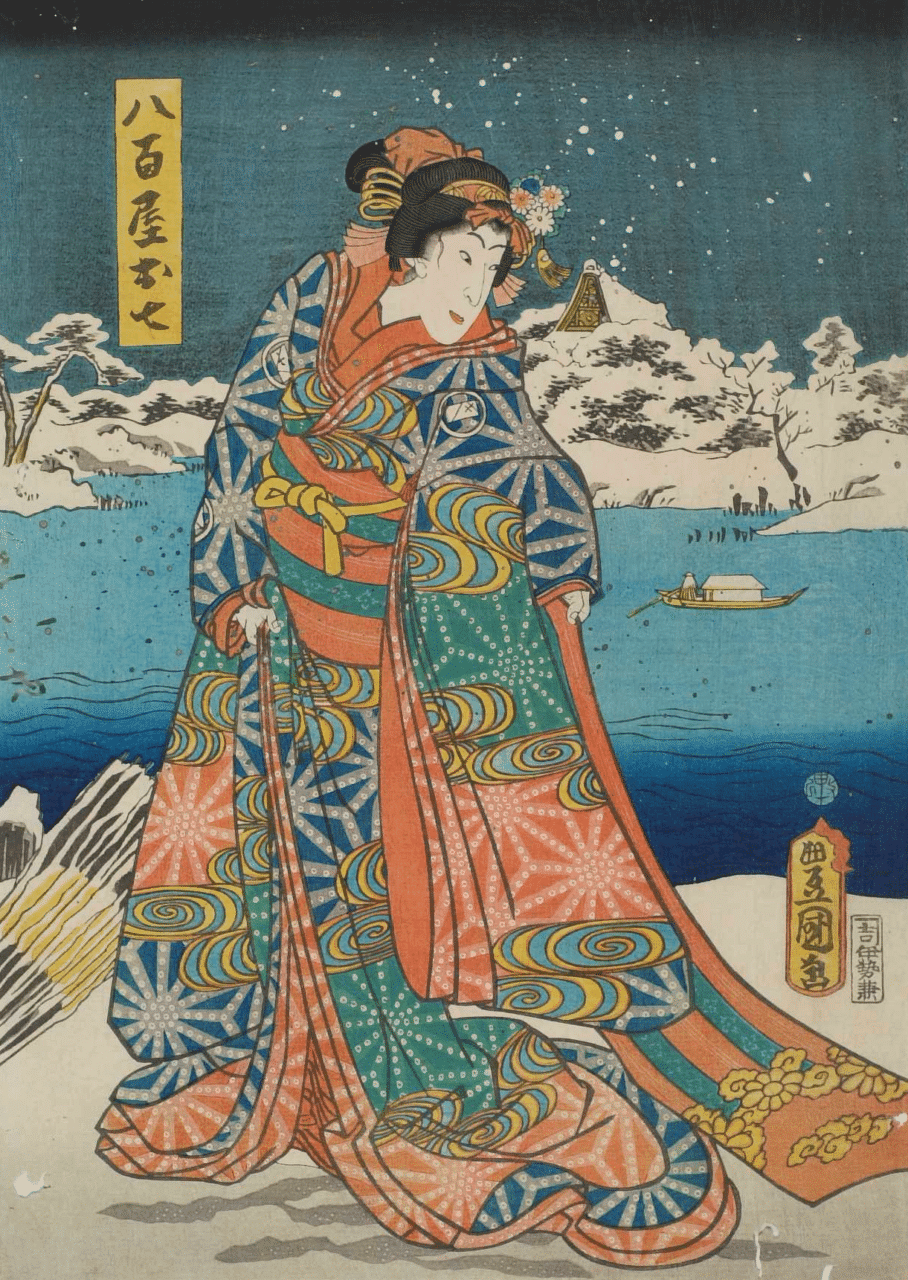
Utagawa Kunisada, 1860.
Asanoha
In ancient Japan, artisans created wagara, beautiful nature-inspired patterns to decorate clothing and other objects. Since cannabis was so popular in Japan, a pattern dedicated to this plant simply could not be missing. Based on regular hexagons, the geometric asanoha motif symbolizes a hemp leaf. And the repetition of asanoha represents a field full of hemp.
Since hemp is a hardy plant, capable of growing fast and straight without requiring much attention, this plant became a symbol of healthy growth for the Japanese. People made baby clothing with the asanoha pattern in the hopes that the baby would grow as fast and straight as the cannabis plant.








